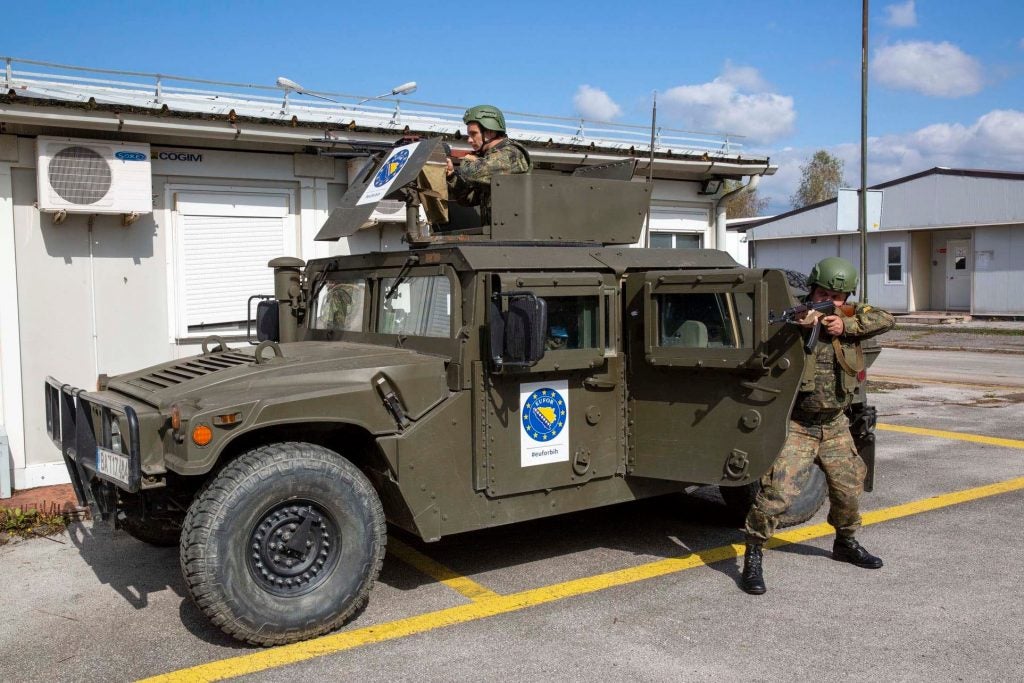Mandate Of European Union Force In Bosnia Extended, But Secession Crisis Continues
The United Nations Security Council voted unanimously on November 3 to extend the mandate of the European Union‘s peacekeeping force in Bosnia and Herzegovina for another year. The vote came after the Security Council agreed to remove all mention of the office of the international peace envoy to Bosnia in the resolution extending the force’s mandate.
The European Union Force Bosnia and Herzegovina, also known as Operation Althea, is a 600-strong peacekeeping force led by the European Union. The force is the successor to NATO’s Stabilization Force, overseeing the military implementation of the Dayton peace agreements that ended the Bosnian War.
The removal of all mention of the Office of the High Representative (OHR) was made in response to Russian insistence that the resolution not do so, failing which the extension of EUFOR’s mandate would be vetoed. Kurt Bassenuer, senior associate of the Democratization Policy Council think tank, has described the move as acquiescence to Russian blackmail, as it weakened the political position of the OHR amidst ongoing threats by Bosnia’s Serbian entity to secede. Delegitimization of the OHR also ties into Russian long-term goals, as the country has long sought to abolish the office.
Christian Schmidt, the High Representative, was also reportedly blocked from speaking at the Security Council, although the first report he submitted following his appointment was submitted to attendees. The report warned of an “existential threat” posed by the secession crisis triggered by Bosnian Serb leader Milorad Dodik. The report also stated that the risks of further division and conflict in Bosnia “are very real”, and that threats by Dodik to withdraw Bosnian Serb forces from Bosnia’s joint military and reform the Bosnian Serb Army among others would “ultimately undermine the state’s ability to function and carry out its constitutional responsibilities.”
Yet another cause for concern are recent comments by EUFOR commanding officer Major General Alexander Platzer that the current Bosnian joint army is “not anchored in the Dayton peace agreement”. The Austrian general made the statement in an interview with Austrian newspaper Der Standard, when asked about what he thought of Dodik’s threat to recreate a military force found guilty of genocide. While he said that tensions around him were noticeable, he blamed the tensions on politicians who were constantly whipping popular sentiment into “crisis mode”.
Platzer’s comments have been poorly received by regional observers and experts, with Srebrenica Memorial Center director Emir Suljagić saying:
“The more I think about the statement by EUFOR Commander Gen. Platzer the more I see the same kind of the abdication of responsibility and insolence that led to the international failure in Srebrenica in 1995. I know, I had a front row seat.”

